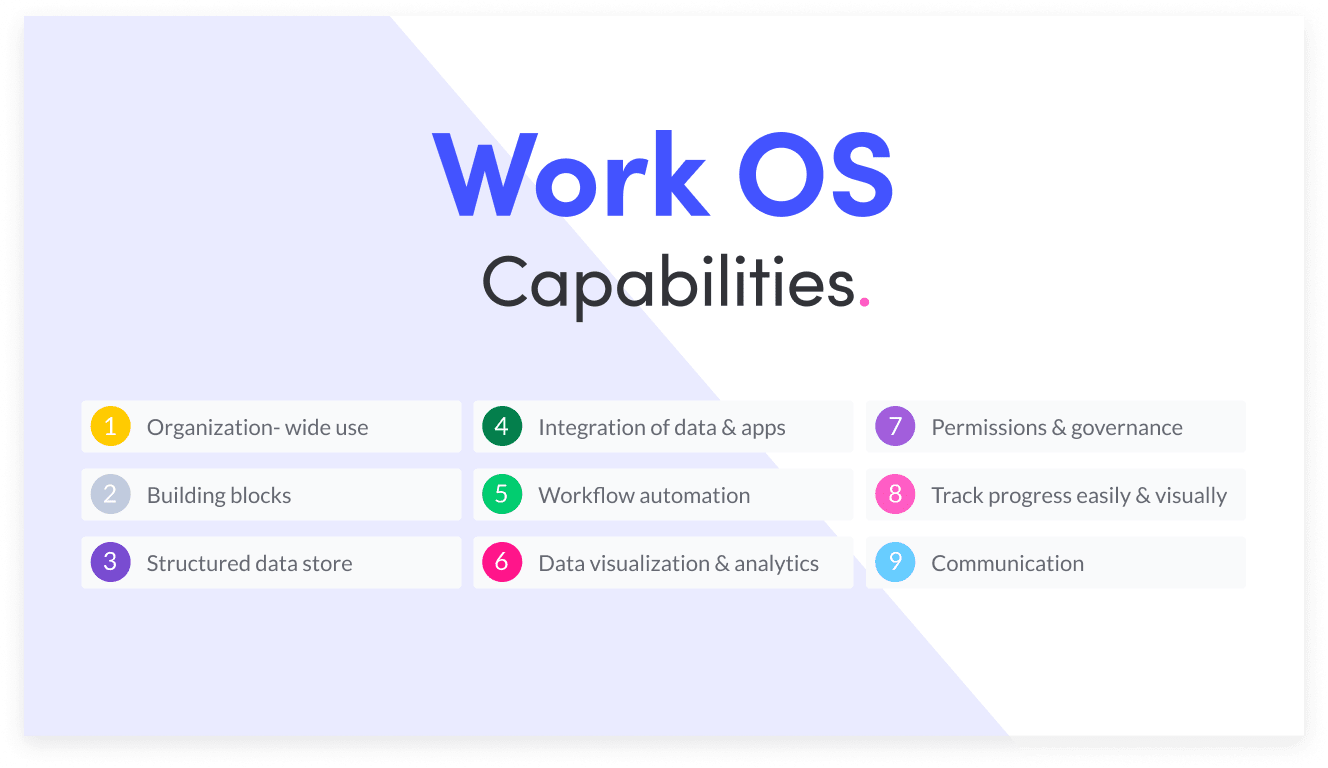A project management career is not for everyone.
It takes a person with many key characteristics.
Are you a strong communicator? Do you have solid decision-making skills? Do your peers say you are “cool under pressure?” Can you build an effective team?
If you answered yes to any (or all!) of these questions, you may have the traits necessary to become a project manager.
But just possessing the essential skills and traits is not enough. Project management is both an art and a science.
And (really good) project managers are essential to a successful 21st-century organization. According to the 2020 Pulse of the Profession® (a Project Management Institute annual report), “an average 11.4 percent of investment is wasted due to poor project performance. And organizations that undervalue project management as a strategic competency for driving change report an average of 67 percent more of their projects failing outright.”
Yikes.
Your project management skills are needed!
This blog post will explore how to get into project management, why a career in project management is beneficial and worthwhile to pursue, and how monday.com can be used as an effective tool to help get into project management.
What is Project Management?
Project management is the process of organizing the project plan, project objectives, milestones, and deliverables of a project, as well as managing team members, timelines, and budgets to ensure that successful projects are delivered.
Project managers — individuals who, well, manage projects — are in charge of planning, managing, and executing various projects.

Effective project management entails assessing project feasibility, creating a project management plan, identifying key project deliverables — breaking them down into more manageable tasks, and assigning them to teams and staff. And finally, ensuring the project runs smoothly from start to finish.
Don’t miss more quality content!
Is project management a good career?
Project management offers not only a stable career but also numerous opportunities for professional growth and development. Skilled project managers often find themselves in high demand across a wide range of industries, from tech to healthcare, construction, and beyond.
With the ability to manage teams, critical thinking, and organize complex projects, individuals in the project manager role contribute significantly to the success and efficiency of their organizations. This career doesn’t require a four-year college degree and allows for mobility across industries, making it an attractive option for those looking for versatile job roles and continuous learning opportunities.
What does a project manager do?
A project manager is responsible for overseeing the project planning, execution, and final delivery of projects within an organization. They ensure that projects are completed on time, within scope, and budget, while meeting the desired outcomes. The following are some of the typical responsibilities of a project manager:
- Developing a detailed project plan to guide the project’s progress.
- Allocating resources, including team members and tools, effectively.
- Managing the project budget and timeline.
- Communicating with stakeholders to ensure alignment and project success.
- Monitoring project progress and making necessary adjustments.
- With strong organizational skills and leadership skills, project managers play a crucial role in ensuring the success of an entire project.
7 reasons why you should consider a career in project management
A project management role at any organization can be challenging. It requires several unique skills and traits — leadership, communication, team-building, delegation, and integrity … to name a few.
A career in project management means you will likely be an integral part of all critical new initiatives at your company.
Projects. Projects. Projects. Project management is the lifeblood of what we do and who we are at monday.com.
One thing is for sure: If you choose a career in project management, expect to be learning … constantly. Every project, every team, every task is unique. And while there is project management software (like monday.com) that will make your life easier, every day is different.
A few more reasons why a career in project management is beneficial and worthwhile to pursue:
Reason #1: Straightforward career path
Not all jobs have a clear career path. Some can be dead ends — not ideal. Still, others are wavy, with lateral moves likely — okay, if that fits your personality. However, project management career paths tend to have a straight-line trajectory.

Photo by Jake Blucker on Unsplash
Photo by Jake Blucker on Unsplash
A possible path may begin as an internship during college followed by a project coordinator. That role often leads to an assistant project manager, then project manager, the lead/senior project manager. At this point, you begin managing bigger teams and often move into a director or VP position. Project managers are typically a good fit for future COOs as well, thanks to all that operations experience.
For tips on interview prep, read this blog covering useful project manager interview questions.
Reason #2: Good salary
According to a recent PMI report, “demand over the next 10 years for project managers is growing faster than demand for workers in other occupations.” It’s projected that “by 2027, employers will need nearly 88 million individuals in project management-oriented roles.”
And jobs in high demand tend to command higher salaries. According to Indeed.com (as of 21-Jan-21), the average project manager salary (in the United States) is $81,798 per year + an annual $13,500 cash bonus. This number goes north of $85,000/year as experience increases.
Don’t miss more quality content!
Reason #3: Lots of industry options
Some job types are specific to a handful of industries. For example, there are not a lot of physicians working at SaaS companies … nor are there many (or any, for that matter) construction workers working in the ER.
However, when it comes to project management, you can pretty much pick your industry: construction, architecture, software, software development, health care, law, finance, energy, non-profit organizations, and so on.
Reason #4: No day is the same
Projects are unique and temporary.
Each new product development is a unique undertaking compared to the implementation of a new software system — one and done.
Additionally, executing on any strategic initiative requires a different set of initiatives this year compared to 3 or 5 or 10 years ago.
Although project managers often learn lessons from their past projects, they are continually leading and guiding a new and unique initiative every time.
Reason #5: Expand your knowledge
While a project management role presupposes the need to know a lot about coordinating (project) teams, there’s still a lot you need to learn to achieve the best results.
Learning can come in the form of seminars and books and other skills-based learning initiatives. Additionally, you can learn from your colleagues, co-workers, and other industry experts.
Reason #6: Become more attentive to details
Attention to detail is a primary requirement for most jobs.
For a project management jobs, it’s essential. The finer details have a considerable impact on the overall output.
A career in project management helps you notice these details and ultimately predict how each of them might influence the project. With this knowledge, you will quickly build strategies and hone new ideas for purposes of team cooperation.
Don’t miss more quality content!
Reason #7: Make an Impact
Many people are continually looking to be in a position that’s meaningful and worthwhile to ensure they make a positive contribution to an industry or company.
In project management, you can work with different team members and feel challenged by problems that should be solved with a job that doesn’t leave you bored. As a project manager, you will feel rewarded when you keep your project schedules on track, meet the budget, and collaborate with colleagues to ensure everything runs efficiently.
Successful project managers help companies improve efficiency and save money to improve the organization’s performance as a whole. Although you will have a long list of responsibilities, you could make a positive impact on people around you. It is easy for you to remain stimulated in the role because you need to create new strategies that require you to experiment with different techniques that can help you meet your stakeholder’s needs.
If you want to pursue a career that allows you to feel fulfilled, working as a project management professional will greatly enhance your professional life. You will feel stimulated and challenged in a position that will enable you to change industries and benefit anyone around you with the unique skills you develop.
The cons of being a project manager
Working in the project management field might not be all daisies. Depending on the industry you’re in, it could be pretty challenging. Here are some cons you should definitely consider.
Dealing with disputes and conflicts
Conflict resolution is a significant part of a project manager’s job. Dealing with disputes and conflicts often requires constructive confrontation and excellent interpersonal skills to ensure that disagreements are resolved quickly and do not derail the project. This can be stressful and time-consuming, necessitating an added layer of patience and diplomacy.
Ownership and accountability
The ownership and accountability that come with managing a project can be daunting. Project managers are accountable for the project’s success or failure, which places a significant amount of pressure on them. Being responsible for every aspect, from budgetary constraints to meeting project deliverables, means there’s little room for error.
Immense pressure
Working as a project manager comes with immense pressure to deliver projects on time, within scope, and budget. They must balance multiple tasks, ensure effective time management, and handle unexpected challenges, all while maintaining a high level of quality in their work. This ongoing pressure can lead to burnout if not managed effectively.
If you are considering a project management career, check out monday.com!
If you are going to consider a project management career, you will need to invest in some project management software.
Project management software is the set of tools and platforms designed to help managers and teams plan, coordinate, execute, and report on tasks and projects.
While there are many piecemeal solutions available, we strongly suggest considering a complete, all-in-one option, like monday.com’s Work OS.
As the screenshot below shows, a Work OS is more than just project management software — it truly is the complete package.

The monday.com Work OS is one platform to manage any project:
- Effective collaboration: one shared platform helps to break communication barriers, move projects forward, and align all stakeholders
- Easy access: keep track of all moving parts — progress updates, budget approvals, etc. — instantly know the status of every project
- Customized workflow: You name the workflow (agile, waterfall, sprints, etc.) and we’ve got you covered
- Integrations: Seamlessly integrate all of your existing tools
monday.com is the project management solution for every stage of your project and portfolio management.
What are you waiting for? Get started with monday.com today. 14-day free trial. No credit card needed.
Don’t miss more quality content!
FAQs
Is project management still in demand?
Yes, there's a very high demand for project managers, especially in larger companies like Apple, IBM, Adidas, Netflix, Microsoft, and others.
Is it hard to be a project manager?
Project management is one of the most challenging careers, it's highly dynamic, no day is the same, and it requires a lot of soft skills to deal with a variety of people and teams across the company, especially for complex projects. And you'll be the contact person if something goes wrong.
Does project management have a future?
Project management is needed now more than ever. As companies grow and go global and/or remote, and projects become more complex, there's a higher need for effective project managers that can take a leadership role in planning and executing larger projects.
What's the highest paid project manager?
The highest paying project roles are a project executive with a salary range of $141,500-$196,500 per year and a PMO lead with a salary range of $123,000-$180,000 per year (according to ZipRecruiter).
Is project management a lot of math?
No, project management doesn't require math, it requires diligence and domain expertise. As long as you are careful when working with budgets you do not need advanced math skills to have a successful career as a PM.
How many hours a week do project managers work?
There is no fixed number of hours that a project manager works. Many project managers work the standard 40 hours per week. Some work more than that, depending on the type of project, the industry, the type of business, and if it's seasonal.
Don’t miss more quality content!
